Located in the lush greenery of Park Sanssouci in Potsdam, the Chinese Tea House is one of the park’s most iconic and photographed landmarks. Blending Rococo extravagance with Chinoiserie influences, this pavilion reflects 18th-century Europe’s fascination with Asian art and culture.
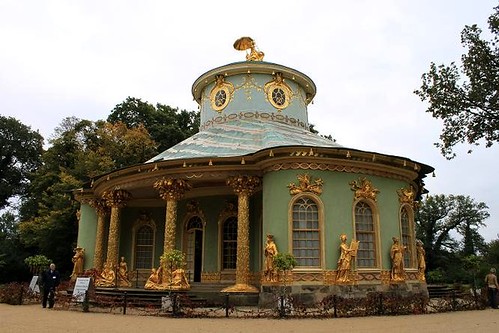
A Rococo Fantasy with an Eastern Touch
Commissioned by Frederick the Great, the Chinese Tea House was built between 1755 and 1764 as a decorative garden feature rather than a traditional teahouse. At the time, European aristocrats were captivated by all things exotic, and this structure represents a fantastical interpretation of Chinese style through a European lens.
The pavilion features a circular layout, crowned with a gilded dome, and is surrounded by lavish gilded sculptures of musicians, philosophers, and tea drinkers dressed in imagined Chinese attire.
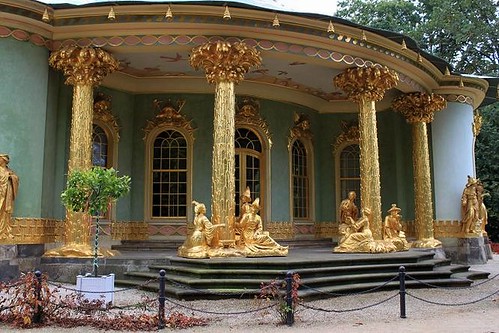
Inside the Tea House
The central hall is flanked by three smaller study rooms, all adorned with delicate detailing and pastel hues. Today, the Chinese Tea House houses an impressive collection of Chinese porcelain, part of Frederick’s personal collection, offering visitors a glimpse into the Prussian king’s eclectic tastes.
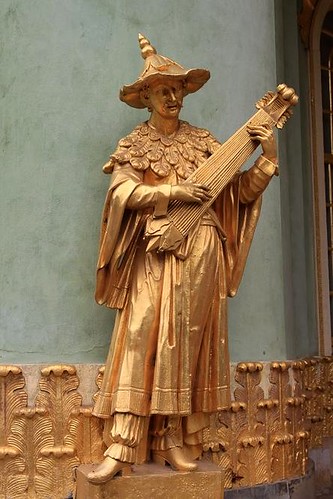
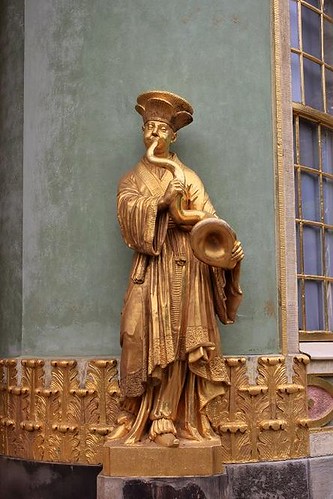
The Perfect Photo Opportunity
The ornate exterior, with its detailed gold leaf sculptures and curved rooflines, makes it a favorite spot for photographers and architecture enthusiasts. If you're visiting for its historical value or just a scenic walk, the Chinese Tea House delivers a picture-perfect moment in every season.
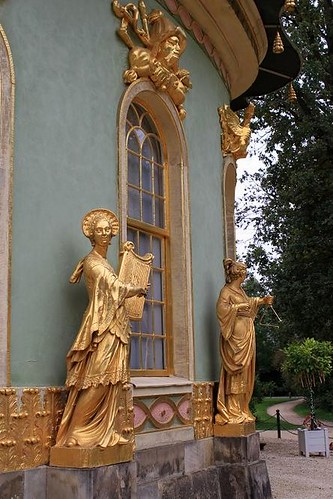
Final Tip
Don’t miss this jewel of European garden architecture, where imagination meets elegance. After your visit, explore the nearby New Chambers and Charlottenhof Palace for a complete tour of Sanssouci’s artistic wonders.
